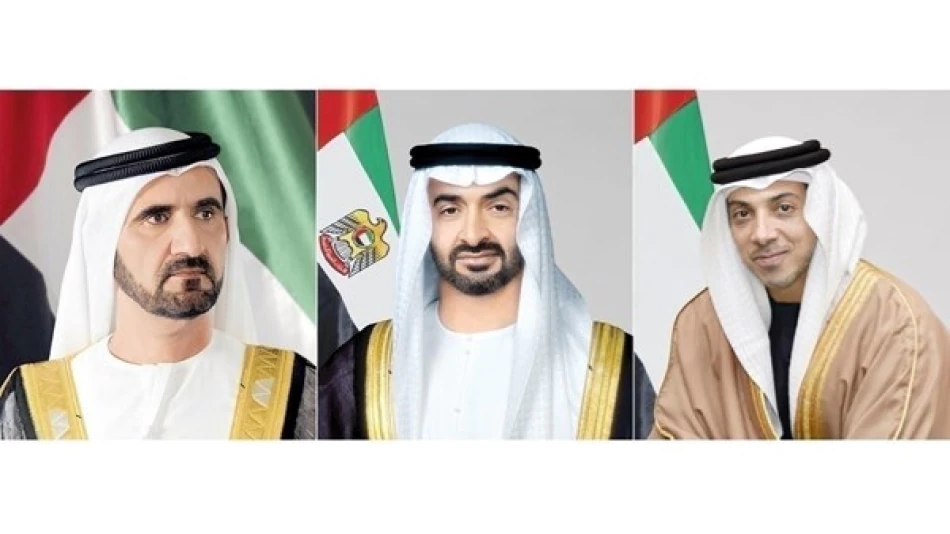
UAE Leaders Celebrate Egypt's Glorious July 23 Revolution Anniversary
UAE Leadership Reinforces Strategic Alliance with Egypt on Revolution Day
The UAE's top leadership has sent congratulatory messages to Egyptian President Abdel Fattah el-Sisi and Prime Minister Mostafa Madbouly commemorating the July 23 Revolution anniversary, signaling the continued strength of bilateral ties between two of the Middle East's most influential economies at a time of regional transformation.
High-Level Diplomatic Engagement Reflects Strategic Priorities
President Sheikh Mohamed bin Zayed Al Nahyan led the diplomatic outreach, dispatching congratulatory cables to President el-Sisi on the occasion of Egypt's foundational national holiday. The coordinated messaging from the UAE's leadership hierarchy—including Vice President and Prime Minister Sheikh Mohammed bin Rashid Al Maktoum and Deputy Prime Minister Sheikh Mansour bin Zayed Al Nahyan—demonstrates the institutional importance both nations place on their relationship.
The July 23 Revolution of 1952, which ended monarchical rule and established modern Egypt, remains a cornerstone of Egyptian national identity. The UAE's formal recognition of this milestone reflects deeper strategic calculations about regional stability and economic cooperation.
Economic Implications Behind the Diplomatic Courtesy
Billion-Dollar Investment Flows
This diplomatic engagement occurs against a backdrop of substantial UAE investment in Egypt's economy. The Emirates has committed over $20 billion in various projects across Egypt, from new administrative capital developments to energy infrastructure. For investors, such high-level diplomatic consistency signals policy continuity and reduced political risk in cross-border ventures.
Regional Financial Hub Competition
The UAE-Egypt relationship also represents a strategic partnership between two nations competing to become the Middle East's primary financial and logistics hub. While the UAE has established itself as the region's trading and financial center, Egypt's geographic position and large domestic market offer complementary advantages. This cooperation model contrasts sharply with the zero-sum competition seen between other regional powers.
Broader Regional Context
The timing of these congratulations carries additional weight given ongoing regional realignments. Both countries have pursued pragmatic foreign policies, prioritizing economic development over ideological positioning—a approach that has yielded tangible benefits in terms of foreign investment and international partnerships.
Unlike the diplomatic tensions that have characterized relationships between other Arab states in recent years, the UAE-Egypt partnership has remained remarkably stable. This consistency provides both nations with reliable partners for major infrastructure projects and economic initiatives that require long-term planning horizons.
Market Perspective on Diplomatic Stability
For regional markets, the continued strength of UAE-Egypt ties represents a stabilizing factor in an otherwise volatile regional environment. The predictability of this relationship reduces uncertainty for businesses operating across both markets and supports the development of integrated supply chains spanning the Gulf and North Africa.
The formal nature of these congratulations, involving the highest levels of UAE leadership, reinforces confidence in the durability of bilateral agreements and joint ventures. This institutional consistency has become increasingly valuable as global investors seek stable partnerships in emerging markets.
Most Viewed News

 Layla Al Mansoori
Layla Al Mansoori






